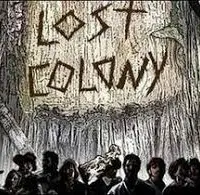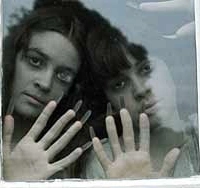Virginia Woolf (1882-1941) is now acclaimed as one of the great innovative novelists of the 20th century. Many of her experimental techniques, such as the use of the stream of consciousness, or interior monologue, have been absorbed into the mainstream of fiction. Her novels have been particularly highly regarded from the 1970s onwards by the new school of feminist criticism. However, the intensity of her creative work was accompanied by mental suffering and ill health. Her often troubled mind seemed to seep into her work from an early age. For example, the story A Terrible Tragedy in a Duckpond, written in Woolf’s teens, revealed her adolescent perception of death and anticipated her own tragic end. Brought up in a highly intellectual circle, The Bloomsbury Group, she developed an impressionistic style of writing in her novels To The Lighthouse (1927), The Years (1937) and Between the Acts (1941), as well as a handful of ghostly short stories, including The Lady in the Looking Glass, Lappin and Lapinova and A Haunted House. Even though her darker work was interspersed with more playful productions, such as Orlando (1928), a fantastic biography which traces the history of the youthful, beautiful and aristocratic Orlando through four centuries and both male and female manifestations, an element of melancholy increasingly pervaded Woolf’s later life and works. The reasons for this have been speculated upon ever since her death.
Alienation
17 JunIt began simply. “In space no one can hear you scream”, cautioned the posters. There were no name actors, no fanfare, no star-laden premieres. Just a tale of seven people, all but one of whom dies at the hands of a seemingly invincible alien life form. Simple, but brilliantly radical, Alien was the grubby flipside of George Lucas’ fairytale utopia, a future where humanity was losing the war with technology and where exploitation and boredom prevailed. Alien was the heaven-sent antidote to the vacant escapism Star Wars’ success had borne in Hollywood, and an anomalous reminder of the power of cinema to terrorise and disturb. The film was conceived by Dan O’Bannon in 1976 but it was only a few years later, with the twin successes of Star Wars and horror films like The Exorcist, The Omen and Rosemary’s Baby, that Hollywood saw the opportunity to combine the two most profitable genres of the time in one movie. Even so, Alien was a massive risk at the time, especially since the director, Ridley Scott, had only one film under his belt when he came on board. This decision, risky as it may have seemed back then, proved to be a masterstroke as Scott stamped his unique vision on Alien with the memorable quote “To me, it was more than a horror film. It was a film about terror.” Now that the saga of Alien has come full circle with the recent release of Prometheus, it is perhaps the perfect time to look at how the original film came to define the genre of sci-fi horror.
Royal Ghosts & Hauntings
10 Jun
With the Jubilee not long past I thought that this would be the ideal time to look at the long and storied history of Britain’s royal ghosts and hauntings. The most difficult part is knowing where to begin – one thing that this country does not have is a shortage of tales of blue-blooded phantoms and faders. There is the ghostly lantern-carrying groom of Althorp in Northamptonshire, the spectral limping priest of Amersham, the blood-curdling screams of Edward II in Berkeley Castle, the decapitated head of Charles I seen floating around Billingham Manor, the various phantom coaches of Norfolk, the duelling knights with fiery swords at Blofield, the disguised queen at Borthwick Castle and the crazed laughter of Queen Isabella at Castle Rising. Royal ghosts haunt the New Forest, Hampton Court Palace and St James’s Park. Windsor Castle, one of the main royal residences, is also one of the most haunted. It somehow seems fitting that a royal line with a history as long, colourful and often lurid as that of the British Isles should boast so many ghost stories. But is there a deeper, darker reason for the prevalence of malevolent spirits in relation to the British Crown?
The Nightmare Man
3 JunHot off the presses! I recently managed to get my hands on Nightmare, the gripping new novel featuring private investigator Jack Nightingale – who fights the powers of Hell itself – by bestselling author Stephen Leather. Leather’s Nightingale novels should appeal to anyone with an interest in supernatural sleuths, since they follow in the great tradition of the classic occult detectives such as Hodgson’s Carnacki, Blackwood’s Silence and Le Fanu’s Hesselius, but updated for a modern audience. Although Leather is one of the UK’s top-selling thriller writers and the author of 23 novels, it was the character of Jack Nightingale which really shot him to author superstardom. Nightmare is the third novel in the Jack Nightingale series and follows Nightfall and Midnight, which were published in 2010/11. What particularly impresses me about Leather, however, is the fact that he started out as a self-published writer who became an e-publishing phenomenon after selling nearly 400,000 e-books online (Leather’s The Basement was the No. 3 bestseller in the Kindle store at the start of 2012). As such, Leather’s example should give hope to all aspiring writers out there, as well as establishing the credibility of e-book self-publishing as a way of breaking into the market.















